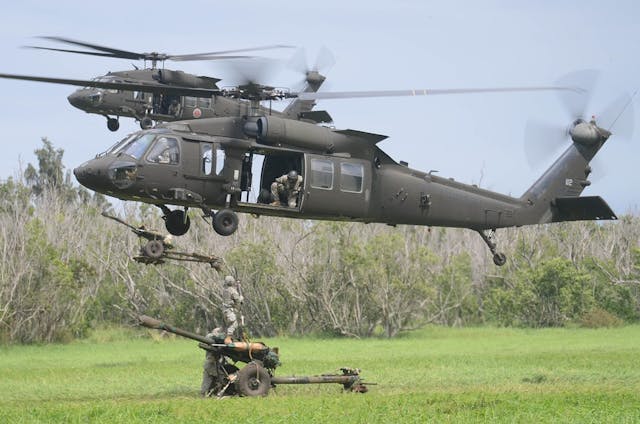UH 60 Black Hawk: Secret Features and Advancements
UH 60 Black Hawk: Secret Features and Advancements
Blog Article
The Duty of Airplane in Forming Worldwide Transportation and Profession Characteristics
The evolution of airplane has indelibly changed international transportation and trade characteristics, helping with extraordinary degrees of connectivity and efficiency. Through the facility of robust air freight networks, businesses can now navigate worldwide markets with amazing speed and agility, thus redefining supply chain strategies. Nevertheless, this makeover is not without its challenges, as the aeronautics market faces sustainability problems and regulatory stress. As we check out the diverse impacts of airplane on worldwide profession, it is important to take into consideration just how these aspects will shape the future landscape of air travel and its function in the economic climate.

Evolution of Air Transportation
The development of air transport has actually been noted by significant technological innovations and innovations that have actually changed the means people and goods cross the globe. From the Wright brothers' very first powered flight in 1903 to the advancement of supersonic jets, each milestone has actually underscored the relentless search of efficiency and speed in flight. Early airplane were primarily primary, restricted by engine power and architectural integrity. Nonetheless, the introduction of innovative products and aerodynamics in the mid-20th century led to considerable enhancements in airplane security, performance, and integrity. uh 60.
The latter part of the 20th century witnessed the development of business aeronautics as a practical setting of transportation, defined by the introduction of jet engines, which reinvented air travel by significantly reducing flight times. In addition, innovations in navigation and interaction technologies have improved functional effectiveness and safety, allowing for more complicated flight routes and timetables. The rise of air freight in parallel with guest services has further underscored the adaptability of aeronautics. As we look to the future, arising technologies such as electric and autonomous airplane assurance to redefine the air transport landscape, ensuring continued advancement and adjustment to international needs.
Effect On Global Profession
Air transport has actually profoundly improved worldwide profession by facilitating the swift activity of goods throughout substantial ranges. This expedited logistics capacity enables businesses to respond swiftly to market demands, consequently enhancing supply chain performance. The capability to transport disposable products, high-value things, and time-sensitive products has opened new markets and chances for various industries, significantly influencing profession patterns.
In addition, the advancement of air freight networks has promoted globalization, making it possible for firms to source products and items from different components of the globe perfectly. This interconnectedness minimizes lead times and prices, enabling companies to remain competitive in an increasingly global market. Additionally, air transport plays an important function in ecommerce, where consumer expectations for quick distribution have actually driven a surge popular for air freight services.
The impact of airplane on global profession expands to the production of tactical trade paths, connecting areas and helping with international collaborations. Nations that invest in air transportation facilities often experience improved financial development and increased international straight investment. In general, the development of air transport has not only transformed the logistics landscape yet has also come to be a crucial element in the characteristics of worldwide trade.

Economic Benefits of Aeronautics
A robust aeronautics field creates substantial financial advantages, adding to task production, tourism, and overall financial development - uh 60. The aviation sector sustains millions of jobs around the world, ranging from direct employment in airlines and flight terminals to indirect duties in markets such as friendliness, transportation, and logistics. According to sector records, for each work in the aviation market, about 3.5 added jobs are developed in the more comprehensive economy
Tourism is a critical element of the economic benefits originated from aeronautics. Flight facilitates international tourism, enabling vacationers to discover diverse destinations, which consequently promotes local economic climates. Countries that buy their aeronautics infrastructure often experience increased visitor arrivals, bring about higher costs on solutions such as attractions, dining establishments, and hotels.

In addition, air travel boosts international connectivity, making it possible for organizations to access new markets and resources efficiently. As an outcome, sectors such as ecommerce and manufacturing benefit immensely from trusted air transportation, additional driving financial development.
Challenges Facing the Aviation Market
Navigating an intricate landscape of governing, environmental, and financial obstacles, the aeronautics industry encounters substantial hurdles that intimidate its sustainability and growth. Laws surrounding safety and security and security are constantly developing, necessitating continuous conformity and adjustment from makers and airlines (uh 60). This can result in boosted functional expenses and source allocation that detracts from advancement and development efforts
Additionally, ecological issues have actually ended up being vital, with growing scrutiny over carbon emissions and environmental pollution. The market is under stress to embrace greener modern technologies and this link methods, which often Clicking Here need considerable investment in study and advancement. Balancing these environmental duties with the need for flight offers a substantial difficulty.
Economic changes, such as rising gas rates and geopolitical unpredictabilities, additionally make complex the landscape. Airline companies regularly come to grips with unstable operating expenses and fluctuating traveler need, which can influence profitability and long-lasting planning. Labor scarcities and skill spaces in crucial locations add another layer of intricacy, preventing operational effectiveness.
Inevitably, addressing these diverse difficulties is crucial for the aeronautics sector to keep its essential duty in global transport and trade, while guaranteeing resilience and versatility in a progressively competitive market.
Future Patterns in Flight
Changing and emerging innovations consumer preferences are positioned to reshape the future of flight significantly. The combination of expert system and machine discovering is anticipated to enhance functional effectiveness, enhance airport terminal procedures, and enhance customer care. Predictive analytics will assist in a lot more exact demand forecasting, enabling airline companies to enhance trip timetables and prices versions.
Sustainability is becoming a key driver in flight, with the aviation market progressively focused on minimizing carbon emissions. Developments in airplane style, such as electric and hybrid propulsion systems, are being checked out to fulfill ecological targets. The adoption of sustainable air travel gas (SAFs) is anticipated to play a crucial duty in attaining net-zero exhausts by 2050.
Customer choices are shifting in the direction of customized traveling experiences. Airline companies are investing in advanced information analytics to tailor solutions and boost consumer engagement, ensuring a more tailored journey from reserving to arrival. Additionally, the surge of remote work might lead to boosted demand for leisure travel, as people look for to integrate work and getaway.
Final Thought
To conclude, aircraft significantly affect international transportation and trade dynamics by helping with fast motion and enhancing supply chain efficiency. The advancement of air transport has additional hints transformed global profession, producing substantial financial benefits while likewise offering challenges that require strategic monitoring. Future trends suggest an ongoing dependence on aeronautics for commerce, emphasizing its integral function in globalization and economic advancement. The continuous adaptation of the air travel sector will be necessary for sustaining its contributions to the global economic situation.
The last part of the 20th century witnessed the introduction of business air travel as a sensible mode of transportation, defined by the introduction of jet engines, which revolutionized air travel by substantially decreasing flight times. The surge of air cargo in parallel with guest solutions has actually additionally highlighted the flexibility of air travel. Furthermore, air transportation plays an important role in e-commerce, where consumer expectations for quick delivery have driven a surge in need for air products solutions.
Overall, the advancement of air transport has not just transformed the logistics landscape but has additionally become a vital part in the dynamics of international trade.
Sustainability is coming to be an essential chauffeur in air traveling, with the aviation sector significantly concentrated on lowering carbon exhausts.
Report this page